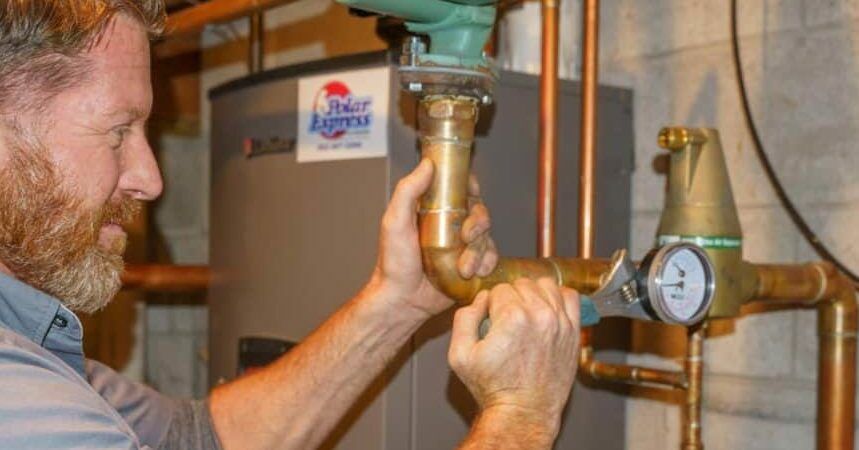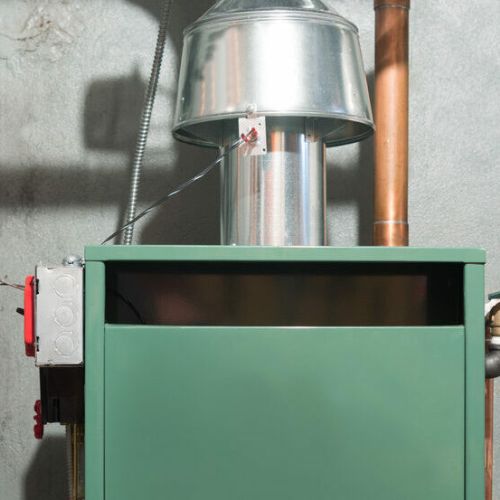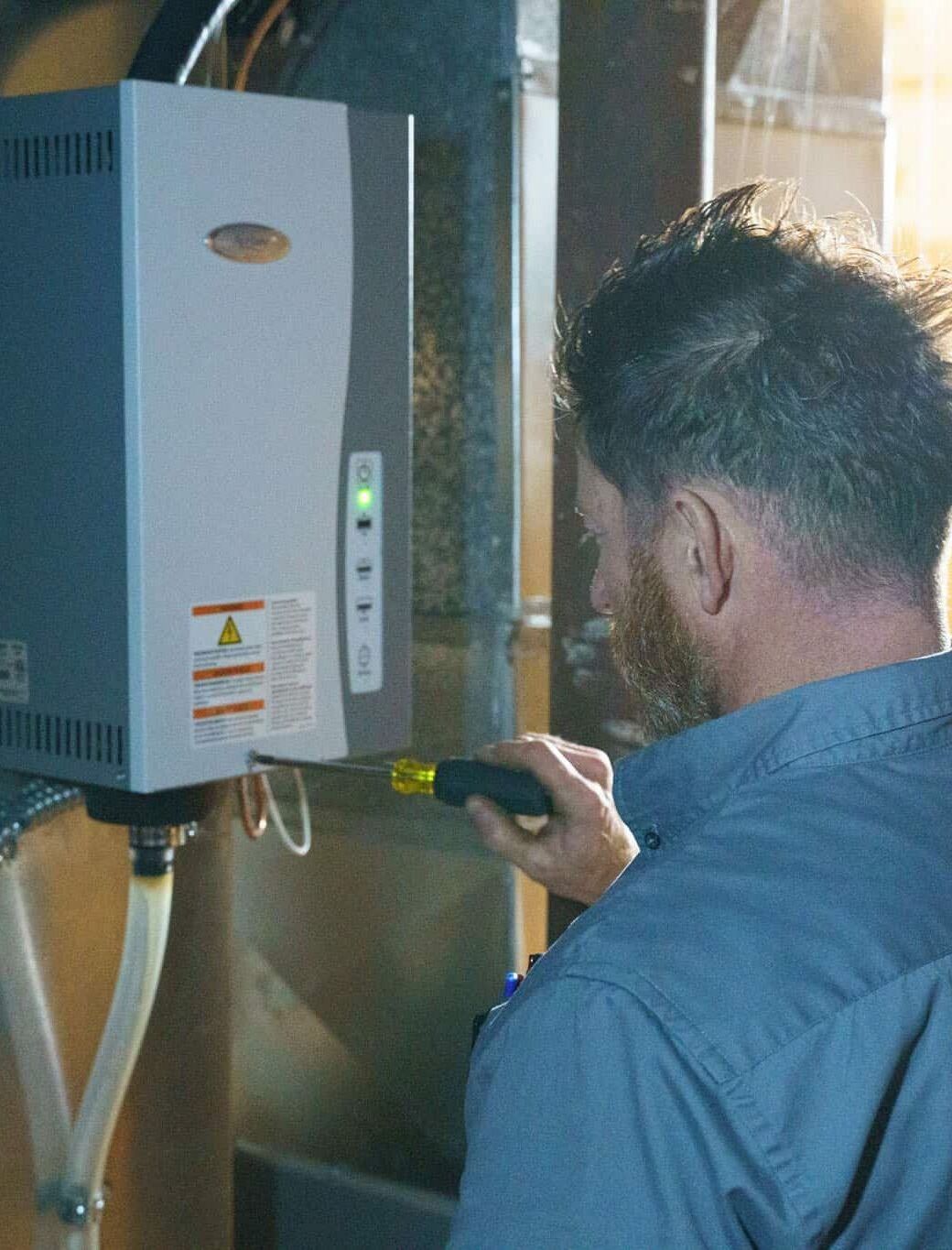Boiler Annual Maintenance
No Salespeople, No Pressure
Thousands of 5-Star Reviews
We Help You Choose The Best
Helpful Financing Available
There Is A Lot To A Hydronic Heating System. Be Sure Your Boiler Is Being Serviced By A True Boiler Guru.
-
Avoid cheap, boiler tune-ups
That would be throwing your money away. You get what you pay for.
-
Avoid boiler tune-ups that promise too much
If it sounds too good to be true, it probably is.
-
Avoid HVAC contractors that don’t specialize in boilers for boiler tune-ups
Boilers aren’t something to dabble in. If your HVAC contractor just dabbles in boilers, it may be best to align with Austin Heating, Air & Boiler who specializes in hydronic in-floor heating and boiler systems.

Annual Boiler Maintenance- Simple, Convenient, Affordable
The most savvy homeowners in Southeast Wisconsin join the Austin Plumbing, Heating & Air maintenance club and have their boiler tuned up every year. There are countless benefits of being a boiler maintenance club member. Learn about our maintenance program.

Austin Plumbing, Heating & Air Has An 80 Year Tradition Of Delivering World Class Boiler Tune-Ups Every Time.
Our boiler tune-up is what your heating system needs to heat better, be more efficient and give you the longest useful life possible.
Our boiler maintenance service has over 60 steps and:
-
It takes 1.5-2 hours to perform our boiler tune-up
-
It will restore the youth of your boiler
-
It will reduce the chances that your heating system will breakdown this winter
-
It will reduce the cost to operate your boiler and lower utility bills
-
It will extend the life of your in-floor or hydronic heating system
-
It is guaranteed
What Is A Boiler
Tune-Up?
A boiler tune-up from Austin Plumbing, Heating & Air is a complete hydronic heating system maintenance.
High efficiency boilers require additional steps based on the type and brand of the system. Here are some typical extra boiler tune-up steps for high efficiency boilers:
- Clean condensate and drain system
- Flush heat exchanger
- Descale heat exchanger
- Exhaust and combustion analyzation
What goes into the Austin Plumbing, Heating & Air boiler tune-up:
During our tune-up process we:
- Clean and check the boiler’s burners
- Clean and check the boiler’s flame sensor
- Test and inspect the venter motor
- Test the blower motor
- Check for gas leaks
- Check the thermostat
- Inspect the flue and venting system
- Inspect the boiler’s electrical
- Check for carbon monoxide
Plus, we:
- Test each thermostat on the boiler system
- Test each zone pump or zone valve on the boiler piping system
- Inspect the boiler pipes
Why Boilers Require Annual Maintenance
A hydronic heating system is a symphony of water, piping, electronics, and science. The challenge with this orchestra of heating is the longer it plays, the more it gets out of tune in the following ways.
-
Safety
A boiler combines natural gas, fire, electricity, water and exhaust in a 24” x 24” ” thin metal box hanging on the wall or sitting on the floor in your basement. With all that’s in play in a hydronic heating system, there is a lot that could go wrong. A boiler that is neglected can become unsafe very quickly. Insuring your boiler is operating safely is a priority during an Austin Plumbing, Heating & Air boiler tune-up.
-
Leaking Boiler Pipes & Valves = Problems
The network of piping involved in a properly functioning hydronic heating system is quite large. Part of the complete boiler tune we perform is a visual inspection of this piping to ensure it’s working correctly and leak free.
-
Boiler Controls & Electronics Wear
A boiler system can cycle on and off thousands of times per season. Every time the boiler kicks in there is a relay race of electronic components involved. Each of these switches wear over time and need to be inspected, recalibrated or replaced.
-
Heat Exchanger Build Up
Over time, sediment and build up accumulates in your boiler’s heat exchanger and needs to be flushed out before it causes larger issues. Monitoring the flow through your boiler is an important step and something we check every year.

Frequently Asked Questions
Yes! Chances are if you’re asking yourself if you should have your boiler checked out this year, it has probably given you an indication that a tune-up is a good idea. The cost of tune-up is far less than a boiler repair!
Our boiler tune-up is $189 and worth every penny of it! Sometimes it is less if we are running a <special>
High efficient boilers require extra service and cost a little bit more at $329.
Yes! Our maintenance club membership program has many benefits. Learn more about our annual air conditioner maintenance club here.
Yes. Annual maintenance is required by all boiler manufacturers. Without it, your boiler is at risk of not being covered by warranty.
The majority of boiler no heat calls we run are the direct result of something not being maintained on the boiler. Often it’s the little stuff that we take care of during the tune-up that causes the no heat calls and boiler breakdowns.
Boilers are a sophisticated heating machine and if they get out of tune, their efficiency can drop a ton. During the tune-up we will use a combustion analyzer and fine tune how the boiler is running so you get extreme efficiency.
We work on many older boiler systems. No matter the age of your boiler, it and your hydronic or in-floor heating system can benefit from annual maintenance and a boiler tune-up. If you book a tune-up and upon arrival we find that your system is not worth working on, we will let you know that. This is a very rare occurrence though.
Replacement boilers cost a lot of money. The best way to prevent buying a new one is making sure the one you have is taken care of. Our boiler tune-ups extend the life of boilers.
Schedule Your Comprehensive Boiler & Hydronic Heating Maintenance Service Today
From emergency service to routine maintenance or installations, Austin Plumbing is ready to take your call!
Call us now to schedule an appointment.